Eat Well To Live Well: Whole-Food Plant-Based Diet

Eat Well To Live Well: Whole-Food Plant-Based Diet
Aug 26, 2021 | By JOI team
Our parents always said, “eat your vegetables!” More and more, it seems they were right… Plant foods, which include fruits, vegetables, whole grains, legumes, nuts and seeds, have tremendous nutritional benefits. So much so that a whole food, plant-based diet (one in which plant foods make up the majority, if not the entirety, of the diet) has consistently shown to have many benefits. A whole food plant based diet may help prevent and treat certain diseases, increase longevity and support overall physical and mental health. “You are what you eat” has never been more accurate.
 Photo by Matthew Henry from Burst
Photo by Matthew Henry from Burst
What is a Whole-Food Plant-Based Diet?
But first, what exactly is a whole-food, plant-based diet? Although there are some variations to plant-based diets, here are the main points:
Excludes the majority (or entirety) of animal products (meat, poultry, fish, seafood, eggs, dairy).
Includes fruits, vegetables, whole grains, legumes, nuts (hint: JOI) and seeds in their whole, natural form (or minimally processed).
Excludes refined food and highly processed food, even if derived from plants.
Excludes added sugars and artificial colors, flavors and additives.
Now you may be wondering, how do we know that this is the way to go? Well, for that, we can thank science. Several studies have found the benefits of eating a plant-predominant diet. One which emphasizes whole, minimally processed foods over animal foods.

Top 3 reasons to try a Whole-Food Plant-Based Diet
Here are the top 3 reasons why a predominantly plant-based diet makes sense:
1. Plant-based diets prevent and may treat diseases.
More and more we are seeing how our dietary choices influence our health and disease risk. As a matter of fact, nearly half of adults in the U.S. have one or more preventable chronic diseases (think diabetes, cardiovascular disease, high blood pressure, obesity and certain cancers). Many of these are caused by poor dietary habits and lifestyle choices (1). A plant-based diet may be just what the doctor ordered.
- Fruits and vegetables are exceptionally high in vitamins and minerals, allowing them to act as antioxidants. Antioxidants protect our cells from damage and stress caused by free radicals (unstable molecules that cause illness and aging).
- Whole grains such as rice, oats, quinoa, etc. are rich in fiber, which support digestion, reduce cholesterol, and help maintain a healthy gut.
- Legumes (beans, chickpeas, lentils, soybeans) are protein-powerhouses. These help us build and maintain muscle while staying lean thanks to being loaded with fiber.
- Nuts and seeds are abundant in what we call the “good fats” and are the best sources of omega-3 in plants. Omega-3 is essential to maintain healthy brain cells, reduce inflammation and prevent heart disease.
All these qualities of plant foods make them powerful in fighting disease!
Studies have shown that a plant-based diet lowers the risk for chronic diseases such as cardiovascular (disease of the heart), diabetes, obesity, as well as most cancers. However, although genetics play a large role in cancer, several studies have shown that lifestyle choices can turn cancer genes on and off. In fact, there are several success stories of cancer patients with advanced disease stages who reversed their illness following a whole food, plant-based diet!
 Photo by Ryan Bruce from Burst
Photo by Ryan Bruce from Burst
Heart Disease and Blood Pressure
Cardiovascular diseases are caused by buildup of plaque in arteries that prevents proper blood flow. This can be a result of a poor diet (high in saturated fats and added sugars), physical inactivity and smoking. The inadequate blood flow can cause heart failure, stroke, and death.
Plant-based foods, which are high in fiber and lower in saturated fat, help cleanse our arteries and promote good blood flow. High blood pressure, also known as hypertension, is when the force of the blood against the walls of arteries is too high. If untreated, it can lead to heart complications (heart attack) and diabetes.
Studies have shown that a plant-predominant diet significantly decreases high blood pressure - but what is most impressive is that the blood pressure reduction was independent of the person’s weight and exercise levels… that’s how powerful your diet can be! (2,3)
Diabetes
The risk of developing type II diabetes occurs when our bodies can no longer process glucose (sugar from carbohydrates), causing blood sugar levels to be dangerously high. This is called insulin resistance and is mostly caused by poor dietary choices or excess fat surrounding cells. Glucose is our main source of energy and is essential for cells to function, but very high levels in the blood can cause nerve damage, loss of sight, and kidney failure. Plant-based diets have been found to be almost twice as effective than conventional treatments due to their ability to improve insulin sensitivity, blood sugar control and reducing body weight. (4,5,6)
High Cholesterol
Cholesterol is an essential molecule that our body needs to create cell membranes (the wall of our cells). When taking your blood cholesterol levels, you will notice different values: total cholesterol, LDL-cholesterol (“bad” cholesterol), HDL-cholesterol (“good” cholesterol) and triglycerides (how our bodies store fat).
Our body produces its own cholesterol to build and maintain healthy cells. However, high cholesterol levels, especially total cholesterol and LDL levels, are known to cause buildup in our arteries, which is a culprit for heart disease and stroke.
High cholesterol levels are caused by consumption of saturated fats in our diet, which are mostly found in animal proteins and dairy products. Studies have shown that plant-based diets are able to lower total cholesterol and LDL-cholesterol, reducing risk for cholesterol-related diseases. (7)
How JOI keeps you healthy:At JOI, we are nuts about nuts. That’s because they are tiny nutritional powerhouses. As you may have noticed, our products contain one and only ingredient: either almonds or cashews, both of which contain tons of powerful nutrients.
Disease-Fighting Ingredients:
Almonds are one of the best sources of vitamin E. As a matter of fact, a handful of almonds provides almost half of the daily recommended amount of vitamin E!
Vitamin E is a fat-soluble vitamin, meaning it only gets absorbed with foods that contain fat (hint: JOI). The main function of vitamin E is to work as an antioxidant, which protects the body from damage, stress and disease. In fact, vitamin E has been found to have a protective effect against heart disease, cancer, and eye damage!
Similarly, cashews also have strong antioxidant power because they contain lutein and zeaxanthin, antioxidants found in our eyes. Like almonds, cashews also protect our eyes from age-related damage and macular degeneration as we get older. (8)
 Almonds and cashews are also great sources of magnesium, a mineral involved in more than 300 reactions in the body, including muscle function (such as keeping our heartbeat - no big deal), and creating energy from the foods you eat. Magnesium also helps support a healthy immune system and keep strong bones! One handful of either almonds or cashews has about 20 percent of the recommended daily intake.
Almonds and cashews are also great sources of magnesium, a mineral involved in more than 300 reactions in the body, including muscle function (such as keeping our heartbeat - no big deal), and creating energy from the foods you eat. Magnesium also helps support a healthy immune system and keep strong bones! One handful of either almonds or cashews has about 20 percent of the recommended daily intake.
2. Plant-based diets help with weight loss and weight management
When it comes to weight loss, it’s important to note that this can be achieved through a healthful and balanced diet. That means, one that is reasonable and sustainable ("diet" here meaning your dietary choices rather than fad diets.)
The foods we choose to consume are far more significant to our health than the amount of calories they contain (for example, a chocolate chip cookie has 150 calories, but half an apple with a spoonful of peanut butter also has 150 calories...you get where we are going with this right?) So, rather than counting your calories, focus on consuming highly nutritious food to support a healthy weight, boost energy levels, improve digestion, prevent disease and live a happy life!
Now, we’ve all heard fiber helps us lose weight. But have you heard that plant foods are the only ones that have fiber? No, we are not kidding; fiber is only found in plants!
Fiber should be your BFF because it keeps you regular (healthy poop, healthy you!).
And, fiber is also the big player in lowering cholesterol levels, keeping a healthy gut flora, and helping with weight management. Fiber contributes bulk in the diet without adding digestible calories, thus leading to satiety and weight loss. Because they are high in fiber, plant foods are lower in calories (not that we are counting, because we aren’t…) while delivering tons of nutrients.
Another plus of fiber is that it slows the absorption of glucose, meaning that you won’t have spikes in your blood sugar (aka sugar high and sugar crash). This makes you less likely to devour a tub of ice cream in the afternoon (hey, no judgement...we’ve all been there).
Research shows that plant-based diets are highly effective as a weight loss approach when compared to other diets, and significantly lower BMI and waist circumference numbers. Plus, plant-based diets offer a large variety of foods without requiring calorie counting or calorie restrictions, so they are easier to sustain overtime. (9,10)

How JOI helps with weight management:
Our flagship plant bases, made with whole almonds or cashews, are a nutrient-dense alternative to other plant milks. That's because we give you the whole nut, full of fiber, healthy fats, and protein for a perfect balance of nutrients. This means that you will feel more satisfied and nourished, without feeling the need to reach for unhealthy snacks. Our healthy fats help with lowering cholesterol and managing weight.
3. Plant-based diets are better for the planet.
Besides being great for our health, plant-based diets are great for the planet. This is because they have a lower carbon footprint (amount of greenhouse gases produced and released into the atmosphere). Why? Because they require fewer natural resources such as water and fuel.
On the other hand, animal agriculture is the leading cause of deforestation, water and air pollution, and the second largest contributor to human-made greenhouse gas emissions (ouch!). In fact, reducing livestock production has been proposed as a major way to reverse climate change.
So, if the health benefits of a plant-based diet haven’t convinced you, maybe you should know that plant-based diets cause 50% less greenhouse emissions than conventional diets. (11,12,13)
How JOI supports the environment:
We’re not just plant-based, we’re planet-safe. One small jar of JOI makes up to 7 cartons of plant milk (those you see in grocery stores). That means you won’t be throwing away cartons to pile up in landfills.
Plus, our jars are made from glass, which is infinitely reusable and recyclable, and both food and dishwasher safe.
Our new Instant Oat Milk Powder is packaged in a durable pouch made from post-consumer recycled material, and each pouch makes up to 8 quarts worth of oat milk.
And we’re not done… several of our products are Certified Organic, meaning less pesticides and fertilizers harming the soil.
On top of all this, our products have a long shelf-life (up to 18 months), meaning that you won’t be throwing away expired product and contributing to unnecessary food waste.
The Run-Down:
Plant-based diets have received more buzz in recent years due to a growing industry of health food products (us included!). However, it has been around for decades; in fact, people from regions called “Blue Zones” are known to live longer and healthier lives due to eating a predominantly plant-based diet.
Plus, behind all the pretty packaging and Instagram photos, there is sufficient scientific evidence proving the benefits of plants in fighting disease, improving well-being and prolonging life. So, we’ll take a vegan latte made with almond or cashew milk (hint: the brand name rhymes with “boy”), please and thank you.
Written by Carolina Schneider, MS, RD (@thegreenrd)
About Carolina Schneider:
Originally from Brazil, Carolina moved to Florida in 2010 to complete her bachelor’s degree in Public Relations and Journalism, followed by a Master of Science in Nutrition & Dietetics. Carolina recently relocated to New York City to pursue her career as a dietitian in the health food industry. She is a Nutrition Consultant for JOI and one of our biggest fans! Carolina believes in the power of a whole-food, plant-based diet combined with physical activity for optimal health. Her favorite foods are dark chocolate and broccoli (preferably not together), and her favorite JOI recipe is the Golden Milk!
Article References:
- Raghupathi W, Raghupathi V. An Empirical Study of Chronic Diseases in the United States: A Visual Analytics Approach. Int J Environ Res Public Health. 2018;15(3):431. Published 2018 Mar 1. doi:10.3390/ijerph15030431. (https://www.ncbi.nlm.nih.gov/pubmed/29494555)
- Whelton, P.K.; He, J.; Appel, L.J.; Cutler, J.A.; Havas, S.; Kotchen, T.A.; Roccella, E.J.; Stout, R.; Vallbona, C.; Winston, M.C.; et al. Primary prevention of hypertension: Clinical and public health advisory from The National High Blood Pressure Education Program.JAMA 2002, 288, 1882–1888. (https://www.ncbi.nlm.nih.gov/pubmed/12377087)
- Yokoyama, Y.; Nishimura, K.; Barnard, N.D.; Takegami, M.; Watanabe, M.; Sekikawa, A.; Okamura, T.; Miyamoto, Y. Vegetarian diets and blood pressure: A meta-analysis. JAMA Intern. Med. 2014. (https://www.ncbi.nlm.nih.gov/pubmed/24566947)
- Kahleova, H.; Matoulek, M.; Malinska, H.; Oliyarnik, O.; Kazdova, L.; Neskudla, T.; Skoch, A.; Hajek, M.; Hill, M.; Kahle, M.; et al. Vegetarian diet improves insulin resistance and oxidative stress markers more than conventional diet in subjects with type 2 diabetes. Diabet. Med. J. Br. Diabet. Assoc. 2011, 28, 549–559. (https://www.ncbi.nlm.nih.gov/pubmed/21480966)
- Barnard, N.D.; Cohen, J.; Jenkins, D.J.A.; Turner-McGrievy, G.; Gloede, L.; Jaster, B.; Seidl, K.; Green, A.A.; Talpers, S. A low-fat vegan diet improves glycemic control and cardiovascular risk factors in a randomized clinical trial in individuals with type 2 diabetes. Diabetes Care 2006, 29, 1777–1783. (https://www.ncbi.nlm.nih.gov/pubmed/16873779)
- Nicholson, A.S.; Sklar, M.; Barnard, N.D.; Gore, S.; Sullivan, R.; Browning, S. Toward improved management of NIDDM: A randomized, controlled, pilot intervention using a low-fat, vegetarian diet. Prev. Med. 1999, 29, 87–91. (https://www.ncbi.nlm.nih.gov/pubmed/10446033)
- Yoko Yokoyama, Susan M Levin, Neal D Barnard, Association between plant-based diets and plasma lipids: a systematic review and meta-analysis, Nutrition Reviews, Volume 75, Issue 9, September 2017, Pages 683–698. (https://academic.oup.com/nutritionreviews/article/75/9/683/4062197)
- Linus Pauling Institute. Vitamin E. [online] Available at: https://lpi.oregonstate.edu/mic/vitamins/vitamin-E [Accessed 7 Jan. 2020]. (https://lpi.oregonstate.edu/mic/vitamins/vitamin-E)
- Huang RY, Huang CC, Hu FB, Chavarro JE. Vegetarian diets and weight reduction: A meta-analysis of randomized controlled trials. J Gen Intern Med. 2015;31(1):109-116. (https://www.ncbi.nlm.nih.gov/pubmed/26138004)
- Turner-McGrievy GM, Barnard ND, Scialli AR. A two-year randomized weight loss trial comparing a vegan diet to a more moderate low-fat diet. Obesity. 2007;15(9):2276-2281. (https://www.ncbi.nlm.nih.gov/pubmed/17890496)
- Gerber, P.J., Steinfeld, H., Henderson, B., Mottet, A., Opio, C., Dijkman, J., Falcucci, A. & Tempio, G. 2013. Tackling climate change through livestock – A global assessment of emissions and mitigation opportunities. Food and Agriculture Organization of the United Nations (FAO), Rome. (http://www.fao.org/3/a-i3437e.pdf)
- Hallström, E, Carlsson-Kanyama, A & Börjesson, P 2015, 'Environmental impact of dietary change: a systematic review', Journal of Cleaner Production, vol. 91, pp. 1-11. (https://www.sciencedirect.com/science/article/pii/S0959652614012931?via%3Dihub)
- J Cleaner Prod. 2015;91:1-11.Raphaely T, Marinova D. Impact of Meat Consumption on Health and Environmental Sustainability. Hershey, PA: IGI Global; 2016. (https://books.google.com/books?hl=en&lr=&id=Gkz-CgAAQBAJ&oi=fnd&pg=PP1&dq=Impact+of+Meat+Consumption+on+Health+and+Environmental+Sustainability.&ots=XBcJ3E6jn8&sig=hbHXxBPs5-f4nBCsYRUTDzxA2W8#v=onepage&q=Impact%20of%20Meat%20Consumption%20on%20Health%20and%20Environmental%20Sustainability.&f=false)





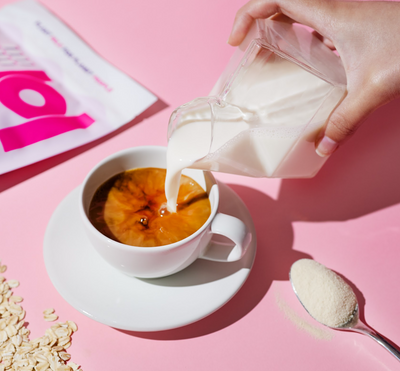
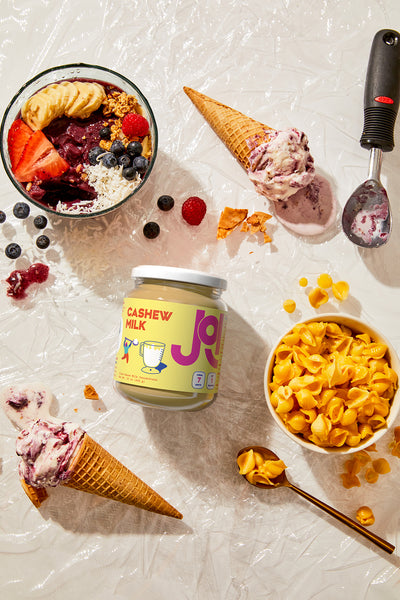
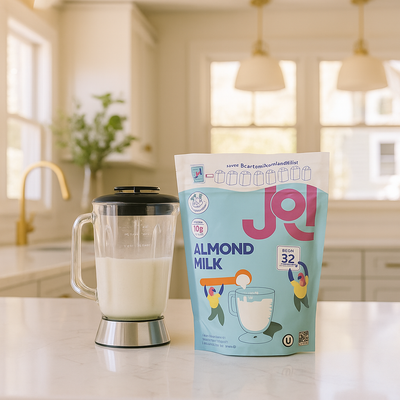
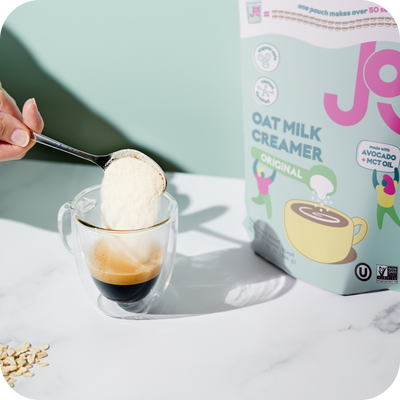
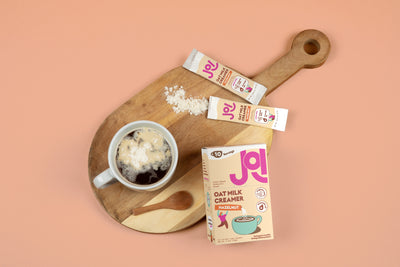
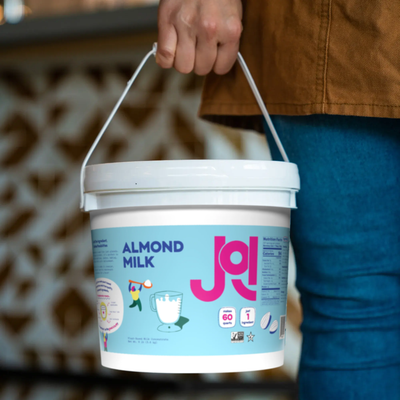
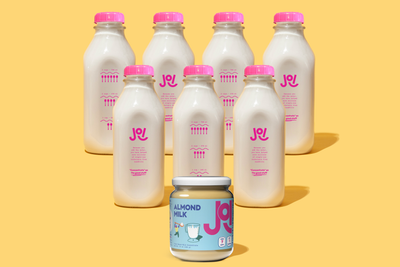
 CHECKOUT
CHECKOUT